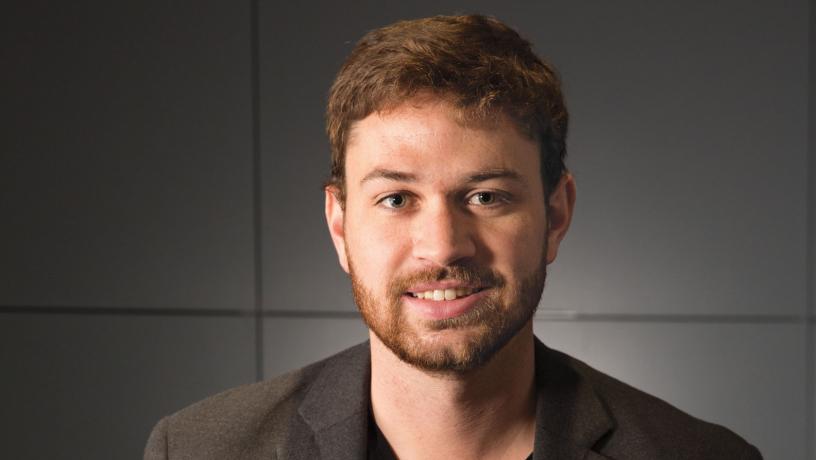Chemical Engineer Chris Boyce Named to Forbes 30 Under 30
Chris Boyce, assistant professor of chemical engineering, has been named to the Forbes 30 Under 30 in Science list, one of 30 young scientists who are “inventing the future from the atom up.”

Boyce’s work is focused on multiphase granular flows, which occur throughout the natural world. Shifting sand dunes, avalanches, mudslides, and tsunamis all involve flow of granular media such as sand alongside liquids and gases. Granular particle structures can behave much like liquids, with gas bubbles rising through particles and particle droplets forming in hourglass streams. Whether they are materials in different states (gas, liquid, or solid) or in the same state with different chemical properties, multiphase granular flows enable a broad array of technologies from carbon capture to pharmaceutical production.
Boyce takes, as Forbes notes, “an interdisciplinary and unconventional approach” to discovering and characterizing instabilities and other flow anomalies, and analyzing how they couple with chemical reactions. His tools include using magnetic resonance imaging (MRI) in a new way to “see” the dynamics of complex systems such as chemical reactors, coupled with computational modeling, to further explore the physics underlying his discoveries.
“I’m really interested in seeing inside systems, just as X-rays and MRI can see inside the human body,” says Boyce. “These tools enable us to see inside in unprecedented detail, helping us to understand the geological flows surrounding volcanos and earthquakes, as well as to develop new technologies in the energy, pharmaceutical, mining, and filtration industries.”
Because of the many length scales, applications, techniques, and areas of science involved in his work, his group collaborates with engineers across many disciplines, as well as with physicists, chemists, and geologists. One area of particular interest is human health. He observes that “blood flow in living creatures is an incredibly complex system and I’m excited to learn more about it.”
Boyce, who joined Columbia Engineering in 2018, received his BS in chemical engineering and physics from MIT in 2011. He earned his PhD in 2015 at the University of Cambridge, where he was a Gates Cambridge Scholar and winner of the Danckwerts-Pergamon Prize for the best PhD thesis in chemical engineering. From 2015-2017, he held postdoctoral positions at Princeton University and ETH Zurich.
